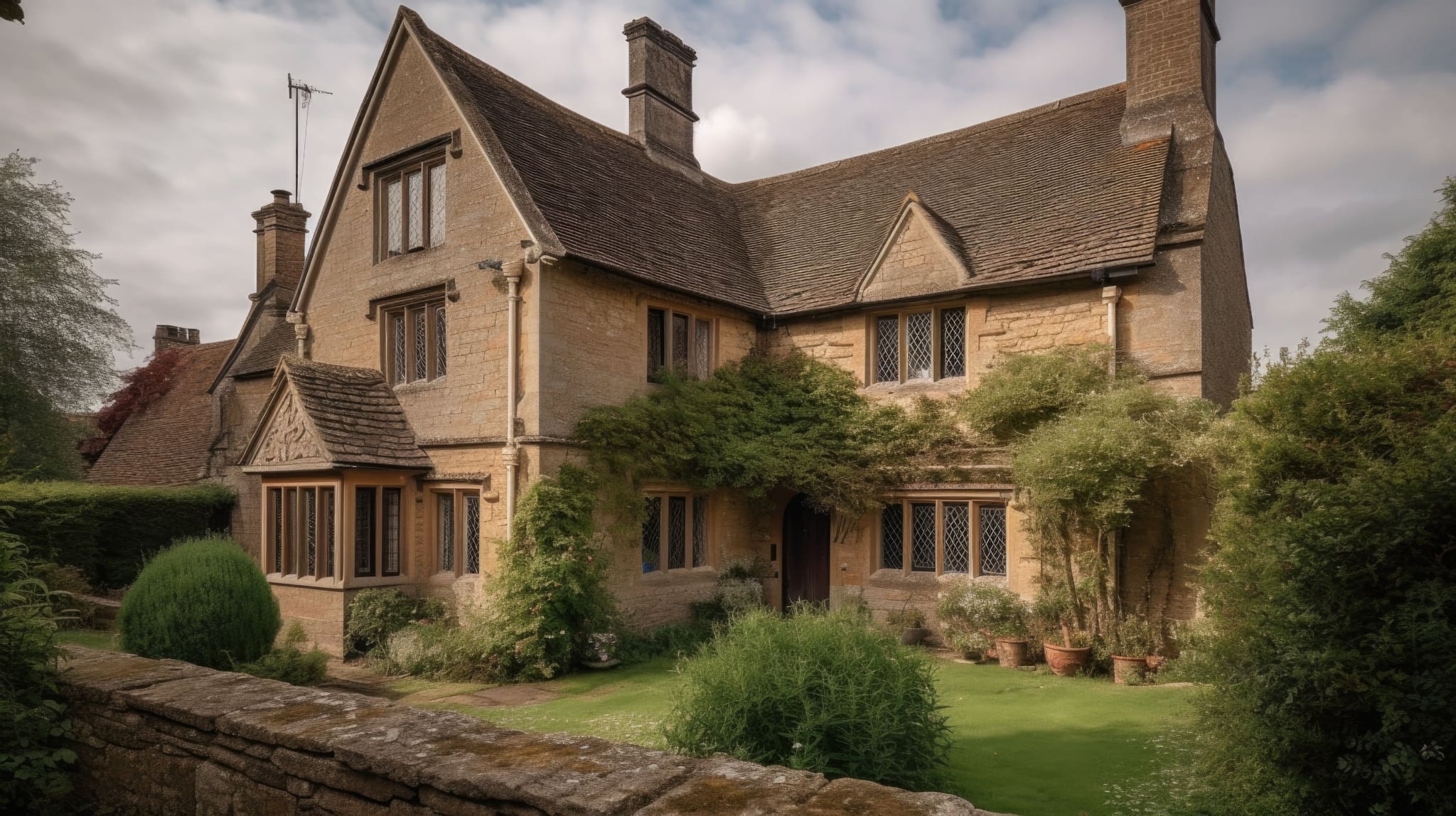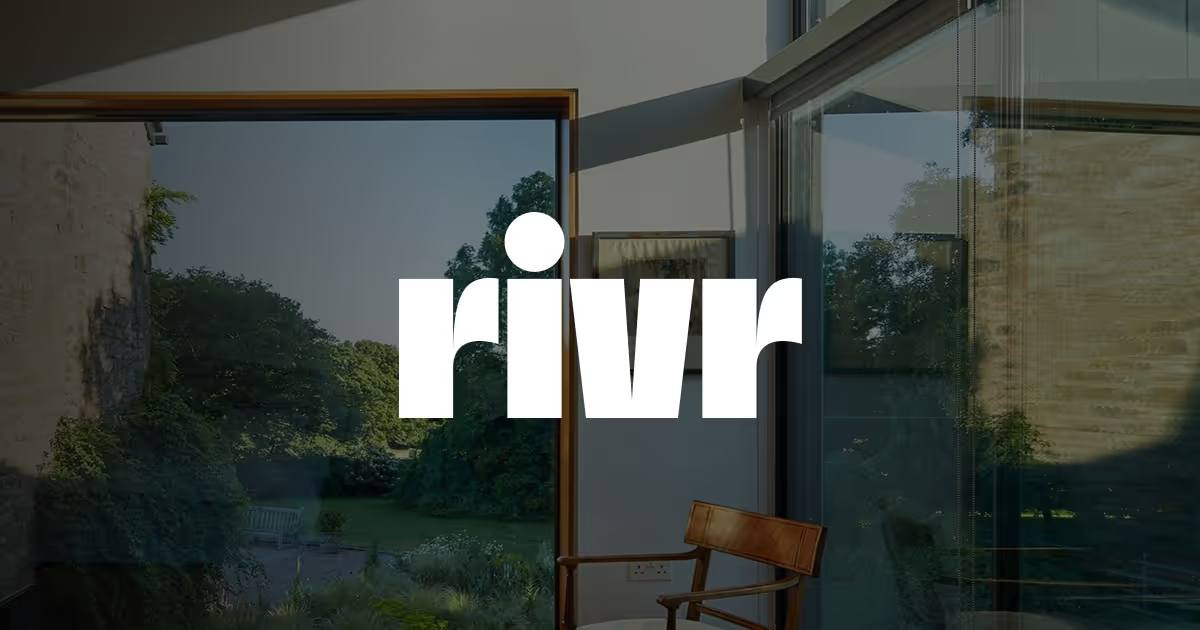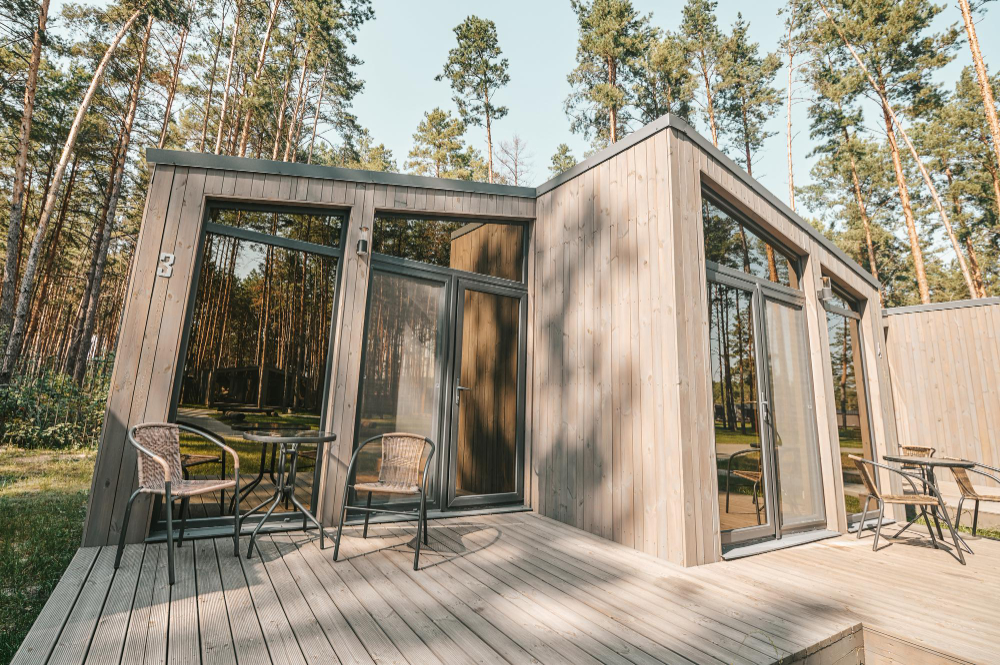.jpg)
Do You Need House Insurance? 12 Reasons You Do
The short answer to this article is that home insurance is not a legal requirement in the UK. However, your mortgage lender often requires it, and it's the most reliable way to protect your property and your belongings against major loss.
At rivr, we arrange high-value home insurance that aligns cover to real rebuild costs and to how you live.
This guide explains the risks you face, when lenders expect you to take out buildings insurance, and how to avoid gaps that lead to avoidable financial loss.
Reason 1. Lenders usually require buildings insurance

If you have a mortgage, your mortgage lender will usually require buildings insurance from the day you exchange contracts.
The lender wants certainty that the property can be repaired or rebuilt after a fire or flood. You become responsible at the exchange of contracts, so you must arrange buildings insurance to satisfy loan conditions and to protect your equity.
If you later own the property outright, you choose the insurance approach, but you also carry the full risk. Treat buildings insurance as a foundational decision, not a box-ticking exercise.
Reason 2. Rebuild costs can exceed market value
Your home insurance should be based on rebuild costs, not on the sale price. Rebuild costs include labour, materials, professional fees, demolition, and site clearance.
Underinsuring risks a reduced claim payment, while overinsuring can lead to higher premiums with no benefit.
Use professional data to estimate rebuild costs and review them each year so you always hold enough cover.
Complex homes, such as a listed building or a thatched roof can push rebuild costs far above expectations, so it pays to check with a surveyor.
Reason 3. Buildings insurance protects the structure
Buildings insurance exists to protect the structure and the fixtures you would leave behind if you moved. That means walls, ceilings, floors, roof tiles, fitted kitchens, and bathrooms. It also includes permanent wiring and pipes.
The policy responds to damage caused by insured events such as fire, storm, flood, escape of water, and subsidence, subject to terms.
Buildings and contents insurance can sit together under one insurer, or you can place them separately. Choose the route that gives clear cover and the best cover for your situation.
Reason 4. Contents insurance protects what you live with

Contents insurance protects the things that make a house a home. Think furniture, clothing, tech, and personal items.
Contents cover applies at home and worldwide on rivr, subject to your schedule and item limits. You can schedule your most valuable possessions and specify high-value items such as jewellery and art where needed.
Tenants should arrange their own contents insurance because the landlord's responsibility is the fabric of the building, not the items you own.
If you are renting, check that your flat or house has adequate security and then insure for a realistic replacement value.
Reason 5. Accidental damage saves the day from avoidable mishaps
No one plans on spilling paint on a new carpet or cracking a stone worktop. This cover protects against sudden, unexpected mishaps to both fixed parts and contents at the property, subject to exclusions and conditions.
Add sensible care measures at home to reduce the chance of damage caused by everyday mistakes.
Reason 6. Personal possessions cover follow you out the door
Your life does not stop at your front step. Personal possessions cover is commonly used to describe protection for items you carry, including mobile phones, watches, and laptops.
On rivr, contents are covered anywhere in the world within the limits on your schedule, so you should still check single article limits and claim conditions so that your home insurance policy works for your day to day needs.
Reason 7. Insurance reduces the impact of severe weather and everyday leaks

Natural disasters are less frequent in the UK, yet windstorms, heavy rain, and surface water flooding do cause serious loss. Escape of water claims from frozen and burst pipes remain common in colder months. Good home insurance and strong buildings insurance reduce the impact of these events.
Keep heating on during cold snaps, lag pipes, and check stopcocks. You then rely on the policy for repairing damage when prevention fails.
The right insurance cover cannot stop bad weather, but it can pay for the rebuild and the clean up.
Reason 8. Alternative accommodation and liability protect your lifestyle
If a serious fire or flood makes your property unsafe, you may need to move out while contractors work. Well-arranged home insurance provides alternative accommodation for up to 3 years when you cannot live in your home after an insured event, subject to terms.
Liability sections cover your legal liability as an owner or occupier, which can be vital if damage caused to a neighbour’s property leads to a claim.
Consider cover for legal disputes as part of your plan, since disputes can arise from boundaries, employment, or consumer contracts. Choose limits that match your lifestyle and location.
Reason 9. Specialist needs require specialist insurance policies
One policy does not fit every property. Owners of rental properties need landlord insurance that addresses tenant-related risks.
This is different from standard home insurance. A landlord faces loss of rent exposure, different liability risks, and specific compliance duties. A combined policy may still be used for a personal home, while landlord insurance suits a let house or flat.
Holiday home insurance covers second homes that may sit empty between visits. It includes different conditions due to unoccupied properties and the way guests use the space.
rivr policies are designed for primary residences, and you can add additional homes to the same policy. If you are renting or letting, align the insurance policies to the real use of the property.
Reason 10. Empty homes and renovations change the risk

Most insurance policies restrict coverage once a home sits empty for a set number of days.
On rivr, theft, attempted theft, vandalism and accidental damage are restricted once the home is unoccupied for over 45 consecutive days unless stated otherwise on your schedule.
Tell your insurer if you plan major building work. Most insurers do not cover your home whilst building works is carried out - remember this includes when you renovate just a single room.
Note: rivr requires disclosure where total building works exceed £75,000.
For escape of water or oil during unoccupied periods, maintain heating at 15°C or shut off and drain systems to keep cover. Do not rely on examples such as earthquakes theft or criminal activity to infer what is or is not covered.
Check your schedule and exclusions, and note that vandalism frozen losses can be limited where heating is not maintained in winter.
Reason 11. Clarity over what is and is not covered
People buy insurance to protect what they have built. Read the schedule and the wording so you know the events insured, the exclusions, and the conditions. Many British insurers index-link sums for buildings and contents to help with inflation, but you must still set realistic sums.
The term buildings insurance typically refers to the fixed parts of the home, while contents insurance focuses on movable items.
You can add home emergency and other options to broaden the solution. Aim for enough cover, not excess bells and whistles you will not use.
Reason 12. The value case, even if you could afford to self-fund
If you could afford to rebuild, you might still choose to insure. Insurance smooths the cost of rare but severe events across time. It lets you protect capital for other uses. That is the logic whether you hold a mortgage or you own the property.
In return, the insurer will pay for repairing damage after insured events such as fire, storm, and escape of water. It is rational risk transfer that protects your household.
How to structure your decision
Start with ownership and lending. If you are buying with a mortgage, you will usually need to arrange buildings insurance at the exchange of contracts. If you own the property, weigh the cost of a total rebuild against the premium.
Then review the property itself. Consider the structure, the age, the roof tiles, and any special features. A listed building can carry complex repair rules.
Finally, look at lifestyle. If you travel, ensure your contents limits fit how you live. If you have students away at university, confirm how the home insurance treats items off site.
What to include in your home insurance policy
You can insure buildings and contents with one insurer or split them. Either route can work when you set the sums correctly and understand the claim process.
Common pitfalls to avoid
Do not rely on the purchase price as a proxy for rebuild costs. The two figures often diverge. Do not skip scheduled items for art or jewellery if they exceed single article limits. Do not forget to tell your insurer about building works or long trips.
If you are renting to others, shift to landlord insurance so that the policy reflects the real use of the building. When renting yourself, check how your contents limits apply away from the home. Do not assume it covers all your belongings in every situation.
Real-world claim moments that change minds
- After a kitchen fire, smoke damage can be worse than the flames. After a cold spell, frozen and burst pipes can ruin floors and ceilings.
- After a burglary, replacing broken glazing and doors is only part of the story. Good insurance pays for skilled trades, safe materials, and proper reinstatement.
- Good home insurance also pays for safe alternative accommodation when you cannot live in your home after an insured event, for up to 3 years.
Cost, fairness, and how to keep premiums in check
Cost matters, but value matters more. Focus on what the policy will pay for and how quickly you can get back to your property.
Choose realistic rebuild costs and review them to avoid higher premiums through guesswork. Improve security, maintain the property, and manage water systems to reduce the chance of damage caused by leaks or storms.
Decide which options you will use. The goal is the best cover for your budget while keeping excesses and exclusions clear.
Final checklist
rivr: Cover for those with more to protect

rivr is a high-value, digital-first home insurance provider built around modern lifestyles. We provide tailored home and contents cover for primary residences with clear wording and a digital service.
If you need to help fully protect the buildings, the contents, and the lifestyle you have built, speak to our team about the right solution for your property.
Get in touch with the rivr team to discuss the best cover for your property.
Read more
Frequently asked questions
No. Home insurance isn’t a legal requirement, but most lenders require buildings cover from the point of exchange to protect their interest in the property.
Yes. Rivr covers sudden or unexpected weather events like storms, high winds or falling trees. Claims are accepted where the property was properly maintained and the damage was sudden, not due to wear or neglect.
You may need high-value home insurance if your property or possessions exceed standard cover limits. Generally, this usually applies if:
- The rebuild value of your home is over £1 million.
- Your general contents are worth more than £100,000.
- Your valuables (such as jewellery, watches, or art) total more than £30,000.
High-value home insurance is designed to provide broader protection and flexible limits for clients with higher rebuild costs and collections of valuable items.
Combined buildings and contents insurance is the most popular type of home insurance in the UK. According to the FCA’s 2023 data, it accounts for the majority of home insurance premiums, with 45 pence in every £1 paid out in claims under this policy type. Industry research estimates that combined policies make up around 70% of the UK market.
Yes. Rivr includes cover for storm and severe weather damage as standard, up to your policy limits. Buildings can be insured up to £3,000,000 and contents and valuables up to £500,000, depending on your chosen cover. This helps protect against large repair or replacement costs following a storm.
Yes, you can cancel or switch your policy at any time. If no claim has been made, you’ll receive a refund for the unused period of cover (less any admin or cancellation fees). Just contact rivr to manage this quickly by email.




.jpg)
